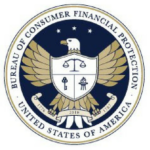The Court of Appeals for the Seventh Circuit has upheld a lower court’s decision that a company contracted by a mortgage servicer to conduct field investigations to determine whether individuals are still living in a property do not meet the definition of debt collectors under the Fair Debt Collection Practices Act.
A copy of the ruling in Schlaf v. Safeguard Property can be accessed by clicking here.
The plaintiffs defaulted on a mortgage that was guaranteed by the Federal Housing Administration and serviced by Green Tree Servicing. The Department of Housing an Urban Development has certain regulations regarding FHA mortgages requiring the servicer to confirm whether the property has been abandoned or is vacant when a mortgage goes into default. Green Tree contracted with the defendant to visit the plaintiff’s home and see if it had been abandoned or if the mortgage holders were still living there. The defendant was instruction to leave a “door hanger,” or a notice to call Green Tree on the front door of the property. The defendant was instructed not to say the name of the company they worked for and were instructed “to avoid talking about why they are on the property.”
The plaintiffs subsequently sued, alleging the defendant violated the FDCPA by not including certain disclosures on the notifications that were being hung on the plaintiff’s door. Specifically, the plaintiffs alleged that the defendants violated Section 1692(g) of the FDCPA by not disclosing certain details about the debt within five days of the initial communication, and Section 1692(e)(11), which requires collectors disclose in their initial communications that they are attempting to collect on a debt.
A District Court judge granted a summary judgment motion in favor of the defendants, which was appealed.
In acknowledging that what constitutes “indirect” debt collection is still being determined on a case-by-case basis, the Appeals Court affirmed the lower court’s ruling that the defendant is not a debt collector, at least as defined by the FDCPA.
Here, the outward appearance of the inspection gives every indication that it is coming from Green Tree. The door hanger does not identify Safeguard in any way, and the phone number connects the homeowner directly to Green Tree. Safeguard does not discuss the debt with the homeowners and has no other contact with the homeowners other than to leave the door hanger. The door hanger itself does not give any details about the homeowners’ debt or demand payment. The district court’s characterization of Safeguard’s role as more akin to that of a messenger than as an indirect facilitator of debt collection was therefore apt.










Hi Mike, Eric Rehmann.
Along the same lines, I need some feedback on another topic, Door Knockers.
They leave an envelope, talk to the debtors if the debtors answer the door, take a picture of the residence or collateral. Would you consider this door knocker a Collector?
Do we have any case on this subject matter?